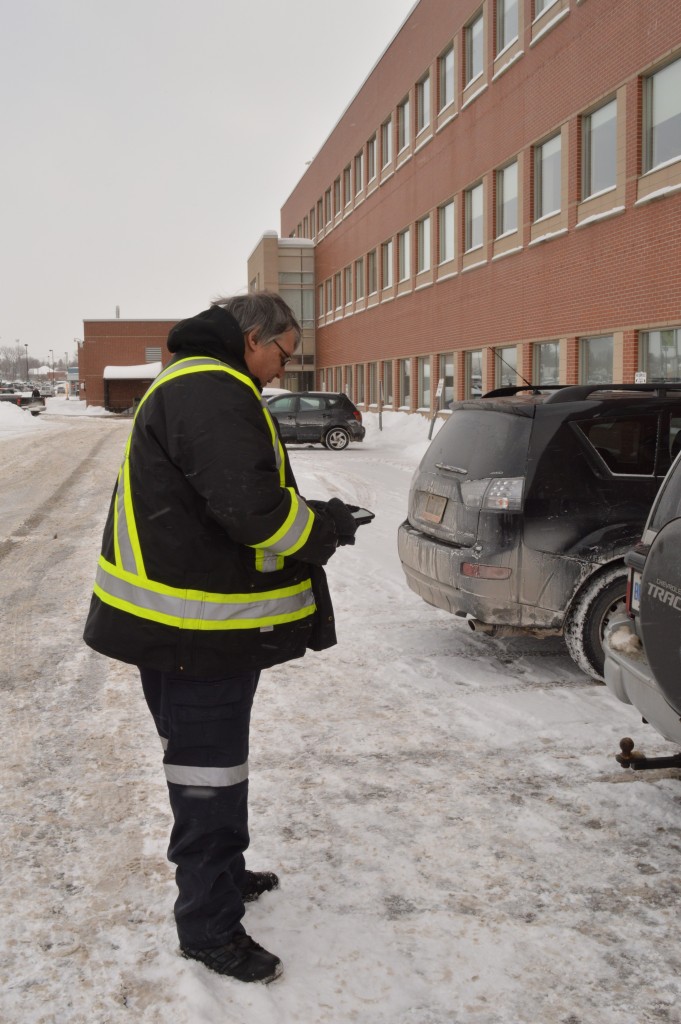
Parking enforcement at the college might get even more efficient. Algonquin tested new licence plate recognition technology on Feb. 12, consisting of four cameras mounted on a vehicle that can scan plates and alert a laptop inside the vehicle of unregistered plates.
If a plate is not registered to park in a specific lot, a noise is emitted in the vehicle which lets the driver know that there is an unregistered car in the lot. \
“This can scan both rows of cars very quickly,” said Roch Lafond the manager of Parking, Lockers, Coin-Ops and Card Services.
“It can read plates at a speed of up to 40 kilometres per hour,” said Lafond. The technology is equipped with a GPS so it knows which lot the vehicle is in.
It is also fitted with 3G technology, allowing it to monitor – in real time – which license plates have pay and display passes.
The vehicle is equipped with both an image-based camera and an infrared camera. “We tried it at night,” said Lafond, “we actually got better results because of the infrared camera.” The technology costs around $60,000.
The current technology allows parking enforcement officers to check license plates on their cell phones.
This can be time consuming because officers can only check one row of parked cars at a time. The new technology will allow them to scan two rows simultaneously.
However, the technology is still not 100 per cent effective. AutoVu, the company that developed the technology, claims that the technology is 80 per cent effective.
“With the weather we have, I’d say 60 to 65 per cent effective,” said Lafond. “It’s not a foolproof system,” said Lafond.
If snow is covering the plate, it cannot be scanned. Quebec plates also present a challenge to the technology because there are no license plates on the front of cars from Quebec.
Students shouldn’t worry about parking officers trying to issue more tickets. “We’re trying to enforce the rights of our paying customers to park on the property,” said Lafond. Walter Grussani, a parking enforcement officer, thinks the technology makes his job easier.
“Sometimes we have to clean the windshield,” said Grussani. “Other times, someone who bought a permit might have put it upside down on their dashboard or put it in their jacket.”
The license plate recognition technology means no tickets will be issued by mistake.
“I issue a ticket because it’s justified, not because I can,” said Grussani.


